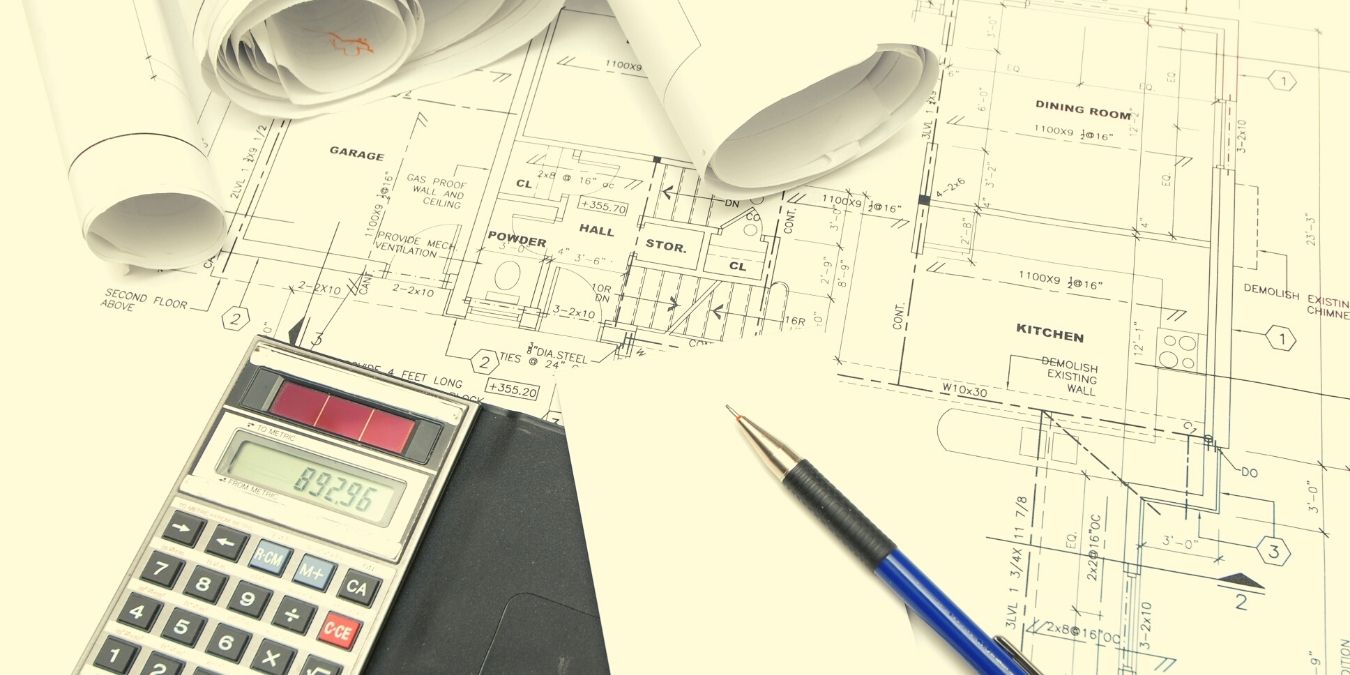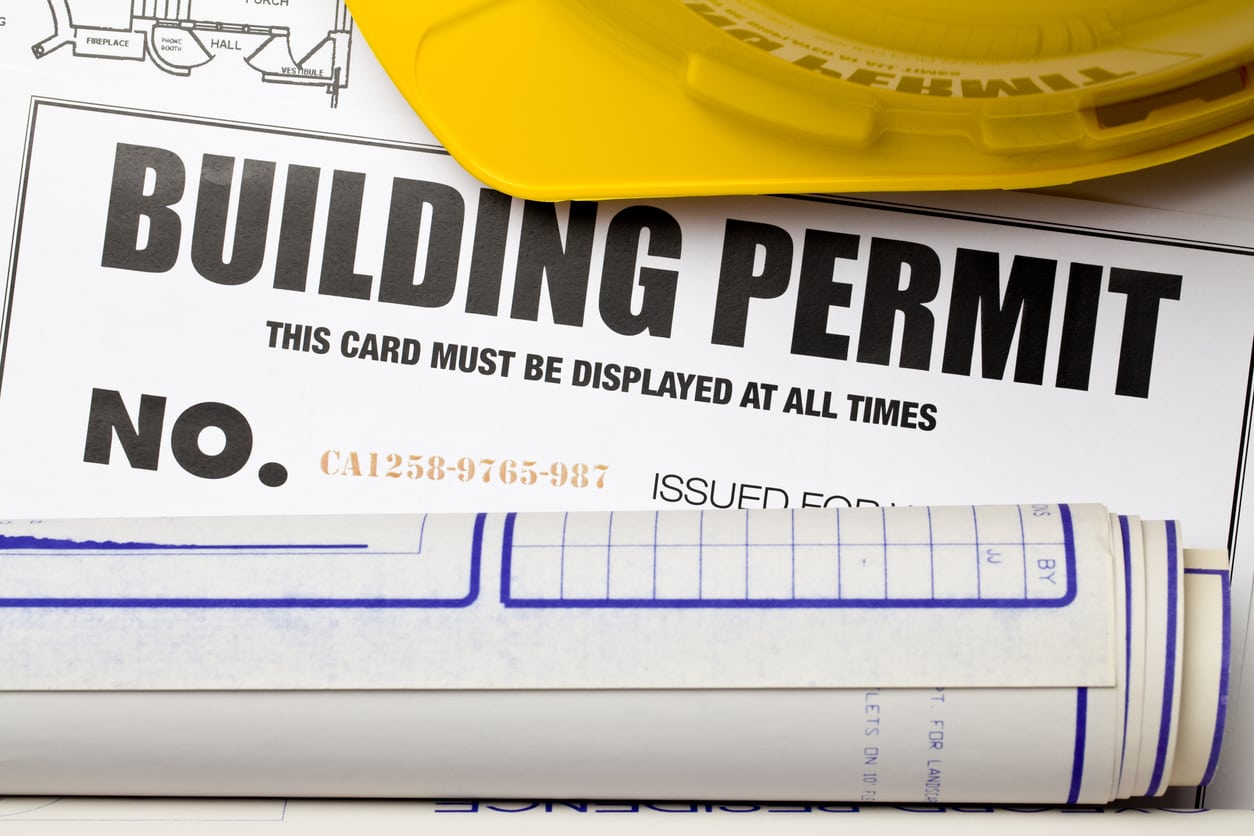Home>diy>Building & Construction>What Is Cost-Plus In Construction


Building & Construction
What Is Cost-Plus In Construction
Modified: January 6, 2024
Learn about cost plus in construction and how it affects building projects. Get insights on the pricing model, advantages, and considerations for builders.
(Many of the links in this article redirect to a specific reviewed product. Your purchase of these products through affiliate links helps to generate commission for Storables.com, at no extra cost. Learn more)
Introduction
Construction projects are complex undertakings that require careful planning, meticulous execution, and effective cost management. In the realm of construction contracts, one commonly used approach is the Cost Plus contract. This type of contract is designed to provide transparency and flexibility, allowing for more accurate cost estimation and, in turn, better project outcomes.
Understanding what Cost Plus in construction entails is crucial for anyone involved in the industry. Contractors, project managers, and clients all need to be familiar with this contract type and its advantages and disadvantages. This article aims to shed light on Cost Plus contracts in construction, exploring their definition, working mechanism, benefits, drawbacks, and factors to consider when choosing this contract type.
Key Takeaways:
- Cost Plus contracts in construction offer flexibility, transparency, and accurate cost estimation, making them suitable for projects with evolving requirements and a need for financial visibility.
- Before choosing a Cost Plus contract, carefully evaluate project scope, risk tolerance, client-contractor relationship, and the potential for changes, ensuring the most suitable contracting method for the specific project.
Read more: What Are Construction Costs
Definition of Cost Plus in Construction
Cost Plus in construction refers to a contracting method in which the client pays the actual costs incurred during the construction process, along with a predetermined percentage or fee on top of those costs. Unlike fixed-price contracts, where the project cost is predetermined from the beginning, Cost Plus contracts allow for more flexibility by accounting for the actual expenses, including labor, materials, equipment, and overhead.
Under a Cost Plus contract, the contractor is reimbursed for the direct costs they have incurred, such as the cost of labor and materials, as well as indirect costs, such as general overhead expenses and management fees. The contractor is also entitled to a predetermined percentage or fee, known as the “plus,” which serves as their profit margin.
It is important to note that there are different variations of Cost Plus contracts, including Cost Plus Fixed Fee (CPFF), Cost Plus Percentage of Cost (CPPC), and Cost Plus Incentive Fee (CPIF). Each variation has its own specific terms and conditions, but all share the fundamental principle of reimbursing the contractor for actual costs incurred.
One key aspect of Cost Plus contracts is the provision of financial transparency. Clients have access to detailed breakdowns of costs, allowing for better understanding and control over the project expenses. This transparency also helps to minimize the risk of cost overruns and disputes.
Cost Plus contracts are commonly used in construction projects where the scope and complexity are not fully defined or subject to change. They provide flexibility for both the client and the contractor to adapt to unforeseen circumstances or changes in project requirements.
How Cost Plus Contracts Work
Cost Plus contracts in construction operate on a reimbursement basis, where the contractor is compensated for the actual costs incurred during the project, including labor, materials, equipment, and overhead expenses. Let’s delve into the step-by-step process of how Cost Plus contracts work:
- Contract Agreement: The client and the contractor enter into a formal agreement, outlining the scope of work, the percentage or fee structure (the “plus”), and other terms and conditions.
- Cost Estimation: The contractor provides an estimated cost for the project based on the available information. This estimation includes direct costs, such as labor and materials, as well as indirect costs, such as overhead expenses and management fees.
- Cost Incurrence: Once the project begins, the contractor tracks and records all incurred costs, including labor hours, materials purchased, equipment expenses, and any other relevant project expenses. Each cost item is meticulously documented and supported by appropriate records, invoices, and receipts.
- Regular Reporting: The contractor provides periodic reports to the client, detailing the progress of the project and the costs incurred to date. These reports include a breakdown of expenses, allowing the client to have transparency and visibility into the project’s financial status.
- Client Approval: As the project progresses, the client reviews and approves the costs before reimbursing the contractor. This ensures that the expenses are reasonable and aligned with the project’s requirements.
- Final Billing: Once the project is completed, the contractor submits a final billing statement, including any remaining costs, adjustments, and the predetermined percentage or fee on top of the actual costs. The client reimburses the contractor accordingly.
Throughout the project, effective communication and collaboration between the client and the contractor are essential. Open dialogue and regular updates enable both parties to address any potential issues, make informed decisions, and maintain cost control. The flexibility of Cost Plus contracts allows for adjustments and modifications as the project progresses, accommodating changes in scope or unforeseen circumstances.
Advantages of Cost Plus Contracts in Construction
Cost Plus contracts offer several advantages in the construction industry, making them a popular choice for projects with uncertain or evolving requirements. Here are some of the key benefits of using Cost Plus contracts:
- Flexibility: Cost Plus contracts provide flexibility to accommodate changes during the construction process. As the scope of work or project requirements evolve, the contract allows for adjustments without the need for extensive renegotiation or change orders. This flexibility enables a smoother project flow and reduces potential delays.
- Transparency: Cost Plus contracts offer transparent financial reporting, providing clients with a detailed breakdown of costs incurred. This transparency fosters trust and accountability between the client and the contractor. Clients can review and verify the costs, ensuring fair and accurate reimbursement to the contractor.
- Accurate Cost Estimation: With Cost Plus contracts, the project cost is based on the actual expenses incurred, reducing the risk of underestimating or overestimating the project budget. This approach results in more accurate cost estimation, providing clients with a better understanding of the financial aspects of the project.
- Faster Project Start: Unlike fixed-price contracts that require detailed planning and cost analysis before commencing the project, Cost Plus contracts allow for quicker project starts. The focus is on getting the project off the ground and making progress while maintaining ongoing cost control.
- Collaboration and Problem-Solving: The collaborative nature of Cost Plus contracts encourages open communication and problem-solving between the client and the contractor. Both parties work together to address challenges, make decisions, and find cost-effective solutions. This collaboration fosters stronger relationships and better project outcomes.
- Reduced Disputes: The transparency and detailed reporting inherent in Cost Plus contracts minimize the potential for disputes arising from cost discrepancies. Since the client has visibility into the costs, there are fewer grounds for disagreement or misunderstanding.
It’s important to note that the advantages of Cost Plus contracts may vary depending on the project’s nature and requirements. Assessing the feasibility and suitability of this contract type for each specific project is essential before making a decision.
Cost plus in construction is a pricing method where the client pays the actual cost of materials and labor plus a percentage fee for the contractor’s services. It’s important to have a clear understanding of the terms and conditions before entering into a cost plus contract.
Disadvantages of Cost Plus Contracts in Construction
While Cost Plus contracts offer various advantages, they are not without their drawbacks. It’s essential to consider the potential disadvantages before opting for this type of contract in the construction industry. Here are some of the key disadvantages of Cost Plus contracts:
- Uncertain Total Project Cost: One of the primary disadvantages of Cost Plus contracts is the uncertainty around the final project cost. Since the total cost is determined by the actual expenses incurred, there is a risk of the project exceeding the initial budget. This uncertainty can pose challenges for clients who have a strict budget or funding constraints.
- Incentive for Higher Costs: In some cases, Cost Plus contracts can create a disincentive for contractors to control costs. Since the contractor is reimbursed for the actual expenses incurred, there may be less motivation to find cost-saving measures or efficiently manage resources. This can result in higher overall project costs.
- Administrative Burden: Cost Plus contracts require extensive documentation and reporting to track and account for all costs. This administrative burden can be time-consuming and resource-intensive for both the client and the contractor. It may require additional staff or systems to efficiently manage and track costs throughout the project.
- Limited Cost Control: While Cost Plus contracts provide flexibility, they can also limit the client’s control over project costs. Since the contractor is responsible for managing the expenses, the client has limited authority to approve or reject costs during the project. This lack of control can be challenging for clients who prefer strict budget management.
- Potential Disputes: Despite transparent reporting, Cost Plus contracts can still give rise to disputes. Disagreements may arise over the reasonableness of certain costs or the contractor’s management of expenses. Resolving these disputes can lead to delays and additional costs, negatively impacting the project timeline and budget.
It’s crucial to evaluate the specific project requirements, risks, and budget constraints before deciding on a Cost Plus contract. This evaluation should involve an in-depth analysis of the potential disadvantages, weighing them against the advantages, to determine the most suitable contract type for the project.
Read more: What Is Indirect Cost In Construction
Factors to Consider Before Choosing Cost Plus Contracts
Before opting for a Cost Plus contract in construction, it is important to carefully consider several factors. Evaluating these factors will help determine if a Cost Plus contract is the most suitable choice for the project. Here are some key factors to consider:
- Project Scope and Complexity: Assess the scope and complexity of the project. Cost Plus contracts are typically more suitable for projects with evolving or undefined requirements, where fixed-price contracts may not be feasible. If the project scope is well-defined and the requirements are stable, a fixed-price contract may be a better option.
- Risk Tolerance and Budget Flexibility: Evaluate the client’s risk tolerance and budget flexibility. Cost Plus contracts carry the risk of uncertain total project costs, which may exceed the initial budget. Clients with strict budget constraints or limited flexibility may find it challenging to manage the potential financial uncertainties associated with Cost Plus contracts.
- Trust and Relationship with the Contractor: Consider the level of trust and the relationship with the contractor. Transparency and open communication are critical in Cost Plus contracts. Clients must have confidence in the contractor’s ability to accurately track and report costs. A strong and trustworthy partnership with the contractor is essential to navigate potential challenges and resolve any disputes that may arise.
- Project Timeline and Urgency: Evaluate the project timeline and urgency. Cost Plus contracts can allow for a quicker project start since there is no extensive pre-planning required. However, if the project has a tight deadline or requires prompt completion, a fixed-price contract may be more suitable as it provides certainty in terms of timeline and cost.
- Oversight and Control: Assess the level of oversight and control desired by the client. Cost Plus contracts provide flexibility to the contractor to manage costs. Clients who prefer more control over costs and decision-making may find it challenging to accept the limited authority in Cost Plus contracts.
- Project Changes and Flexibility: Consider the likelihood of project changes and the need for flexibility. Cost Plus contracts are designed to accommodate changes throughout the construction process. If the project is anticipated to undergo frequent changes, such as design alterations or unforeseen circumstances, a Cost Plus contract may be better suited to adapt to these demands.
Carefully evaluating these factors will help make an informed decision regarding the most suitable contracting method for the specific project. It is advisable to consult with industry professionals and legal experts to ensure compliance with relevant regulations and to effectively mitigate potential risks.
Examples of Cost Plus Contracts in Construction
Cost Plus contracts are commonly used in various construction projects, providing flexibility and transparency in managing costs. Let’s take a look at a few examples of how Cost Plus contracts are applied in different construction scenarios:
- Renovation Projects: When renovating an existing building or property, the extent of the required work may not be fully known upfront. Cost Plus contracts are ideal for such projects where unexpected conditions or changes may arise during the renovation process. The contractor is reimbursed for the actual costs incurred for labor, materials, and other expenses, ensuring transparency and flexibility.
- Infrastructure Development: Large-scale infrastructure projects, such as highways, bridges, and airports, often involve complex designs, evolving standards, and uncertain quantities of materials. Cost Plus contracts allow for adjustments in cost estimation and provide flexibility to accommodate changes in project specifications, ensuring timely completion while addressing unforeseen challenges.
- Custom Home Construction: When building a custom home, the client may have evolving design requirements and preferences that may change throughout the construction process. Cost Plus contracts allow for flexibility in incorporating design changes and selecting materials, ensuring that the client’s vision is realized while tracking the actual costs incurred.
- Government Contracts: Government projects, such as public infrastructure or defense projects, often entail complex requirements that may evolve during the construction process. Cost Plus contracts are commonly used in these scenarios, as they provide transparency and flexibility to manage costs and accommodate changes dictated by government regulations or evolving project needs.
- Industrial Projects: Industrial construction projects, such as factories or power plants, often involve specialized equipment, evolving technology, and changing safety requirements. Cost Plus contracts allow for adjustments in cost estimation and provide flexibility to meet safety standards and incorporate advanced technology, ensuring compliance while managing the actual costs incurred.
These are just a few examples of how Cost Plus contracts are applied in various construction projects. It is important to note that the suitability of Cost Plus contracts depends on the specific project requirements, risk tolerance, and the availability of accurate cost tracking and reporting systems. Consulting with legal experts and industry professionals can help determine the most appropriate contract type for a given construction project.
Conclusion
Cost Plus contracts in construction provide a flexible and transparent approach to managing project costs. This type of contract allows for reimbursement of the actual expenses incurred by the contractor, along with a predetermined percentage or fee as profit. While Cost Plus contracts offer certain advantages, such as flexibility in accommodating project changes and providing transparency to clients, they also come with potential disadvantages, including uncertain project costs and limited client control over expenses.
Before opting for a Cost Plus contract, it is important to carefully consider various factors, including the project scope and complexity, risk tolerance, trust and relationship with the contractor, project timeline, oversight and control requirements, and the likelihood of project changes. Evaluating these factors will help determine if a Cost Plus contract is the most suitable choice for a specific construction project.
Examples of Cost Plus contracts can be found in a range of construction scenarios, including renovation projects, infrastructure development, custom home construction, government contracts, and industrial projects. Each of these examples demonstrates how Cost Plus contracts can provide flexibility and transparency in managing costs and addressing evolving project needs.
Ultimately, the selection of the appropriate contract type, whether Cost Plus or fixed-price, should be carefully assessed based on the specific requirements and objectives of the construction project. Consulting with industry professionals and legal experts can provide valuable guidance in making informed decisions and ensuring compliance with relevant regulations.
By understanding the concept of Cost Plus in construction, its advantages, disadvantages, and the factors to consider, stakeholders in the construction industry can navigate the complexities of cost management more effectively, leading to better project outcomes and client satisfaction.
Frequently Asked Questions about What Is Cost-Plus In Construction
Was this page helpful?
At Storables.com, we guarantee accurate and reliable information. Our content, validated by Expert Board Contributors, is crafted following stringent Editorial Policies. We're committed to providing you with well-researched, expert-backed insights for all your informational needs.















0 thoughts on “What Is Cost-Plus In Construction”